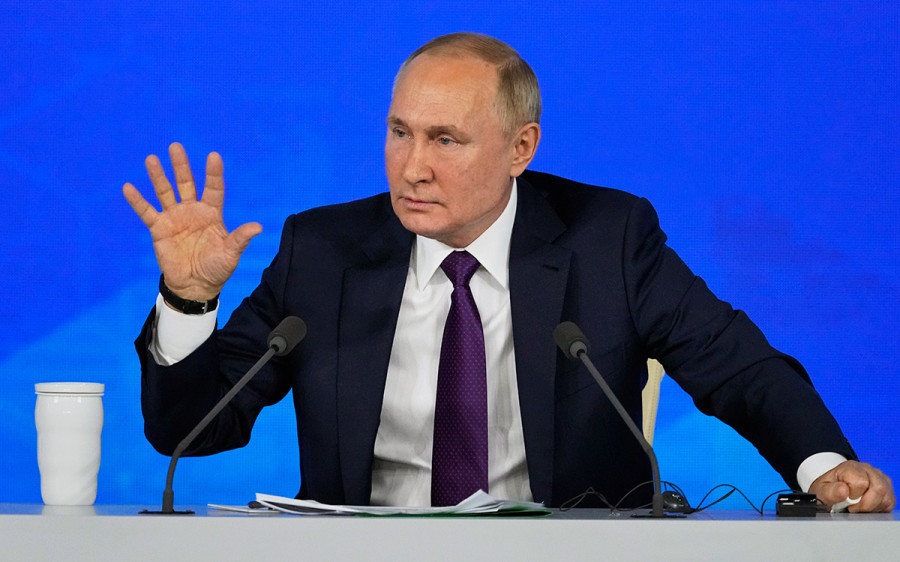Russian President Vladimir Putin insisted that Kyiv must recognize the results of referendums held in four Ukrainian regions in autumn 2022 to avoid risks of conflict resumption in the future.
However, the international community, including Ukraine and Western nations, rejected the legitimacy of these referendums, citing their conduct under military occupation and without international oversight.
The Russian leader warned that rejecting these results “means there are chances for the resumption of armed conflict,” according to his interview with Sky News Arabia reported by RBC.

Beyond territorial recognition, Putin outlined additional requirements for what he termed long-term regional stability. These include Ukraine adopting neutral status by renouncing membership in foreign military alliances and abandoning nuclear weapons development, but as of now, Ukraine does not have an active nuclear weapons program.
“Ukraine deserves a better fate than being an instrument in the hands of external forces working against Russia,” Putin stated, reiterating Russian propaganda narrative that Ukraine is a proxy of Western geopolitical interests rather than an independent actor.
Earlier, Russian President urged Ukraine to accept Moscow’s demands from previous Istanbul peace talks, warning that Ukraine’s situation will worsen if negotiations are delayed.
During Istanbul peace talks on 16 May, Russian presidential aide Vladimir Medinsky reportedly told the Ukrainian delegation that Russia is prepared to fight for “a year, two, three—however long it takes,” invoking Russia’s historical 21-year war with Sweden to emphasize its willingness for prolonged conflict.
Despite Russia’s claim of not wanting war, Medinsky warned that some participants might lose more loved ones and that Russia is ready to fight indefinitely.
During the 2 June negotiations in Istanbul, Ukraine and Russia exchanged position papers outlining their respective visions for ending the war.
Russian demands include:
- Ukrainian military withdrawal from four occupied regions
- written guarantees from Western leaders to halt “NATO’s eastward expansion”, effectively excluding Ukraine, Georgia, and other former Soviet states from membership
- Ukraine adopting a neutral status and limitations on Ukraine’s armed forces
- partial lifting of Western sanctions
- resolution of frozen Russian assets abroad
- protections for Russian speakers in Ukraine
- holding of Ukrainian elections under terms favorable to Moscow.
Ukraine rejected these demands, insisting on its sovereign right to choose alliances and strong Western security guarantees.
In contrast, Ukraine presented its own ceasefire proposals, including:
- complete cessation of hostilities
- return of deported children and prisoner exchanges
- security assurances
- rejection of any forced neutrality or restrictions on its military capabilities and alliances, including NATO membership
- maintaining Ukrainian sovereignty.




